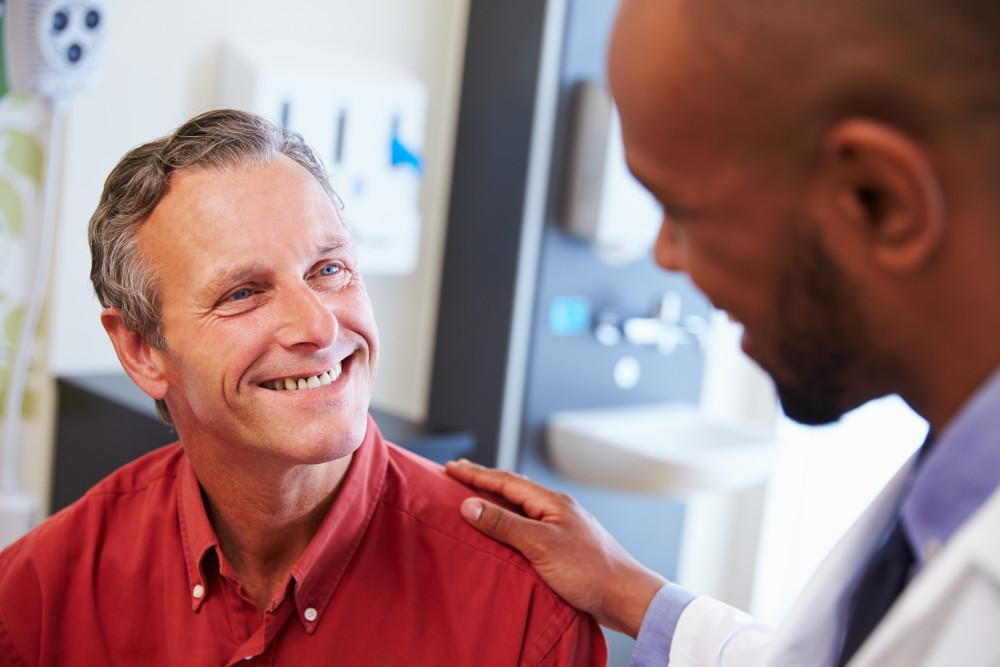
The Centers for Disease Control and Prevention recommends regular colonoscopies starting when you turn 50 , for most people, or younger if there’s any history of colon cancer. Although not exactly the best birthday present you could hope for, a colonoscopy is the surest way to know if you have any precancerous polyps in your colon. These growths are typically benign, for now, but can develop into cancer.
The main purpose of a colonoscopy is to look for polyps so they can be removed before they become cancerous, and to provide you with peace of mind. A colonoscopy involves a light and a camera, or “scope”, affixed to a long, thin tube, and the camera images are displayed on a screen for the doctor to see. This allows the doctor to see any abnormalities, such as precancerous polyps or other growths.
There’s no need to be overly concerned about the procedure itself or the preparation leading up to your colonoscopy. Here’s the lowdown on exactly what takes place, so you can be prepared and put your mind at ease.
Preparing for your colonoscopy
Here at Hawaii Gastroenterology Specialists, we advise our patients about how to prepare for a colonoscopy. You’ll be given step-by-step instructions and prescriptions. Follow your instructions very carefully and fill your prescriptions right away so you can be ready to prep.
You’ll need to clean out your colon, so plan on spending the better part of the day before your procedure at home. You’ll be instructed to drink your prescribed liquid at regular intervals. It gives you a strong urge to use the bathroom, and the urge continues for a few hours. Comfort wipes are a good thing to have on hand.
You’ll be sedated for your procedure, so arrange to have a reliable person available to drive you home and get you settled after your colonoscopy.
When you arrive for the procedure
When you arrive for your colonoscopy, you’ll be given forms to fill out. This is standard procedure. You’ll be instructed not to drive, operate machinery, or make any big decisions for the rest of the day. This is because you’ll be sedated and the sedative effects can linger.
You’ll be taken to the procedure area and given a gown to change into. Your doctor meets with you to answer any questions, and your IV will be started. You’ll be asked to turn on your side, with your knees drawn up, and the sedation will begin through your IV. The type of sedation may vary, but you won’t be fully “under” as with general anesthesia. You may even be semi-aware of voices in the room, although you won’t know what’s happening or feel any discomfort.
Throughout your colonoscopy, your heart rate, blood pressure, and respirations will be monitored. A colonoscopy is a common procedure, and complications are extremely rare. The entire process takes about an hour, depending on whether or not your doctor discovers any polyps. Any polyps are removed and sent to a lab to be analyzed for cancer.
After your colonoscopy
When your procedure is over, you’ll be taken to recovery where you’ll begin to come out of the anesthesia. Everyone is different, but most people come around in a few minutes. Others may take a bit longer.
Your friend or family member who came along may be in the room when you awaken. Once you’re fully awake, your doctor explains what they discovered during your procedure. You’ll be given your discharge instructions and a timeline for your lab results, if appropriate.
Once you’re cleared to go home, you’ll still feel sleepy, so plan to spend the day relaxing as the sedation wears off. The only discomfort you may feel is some slight bloating and gas. You may pass some blood with your first bowel movement, which is normal, especially if you’ve had polyps removed.
Caring and compassionate experts
We’re experts in caring for the health of your colon. With two offices, conveniently located in Aiea and Honolulu, we make scheduling your colonoscopy worry free. If you’re 50 or over, or if your primary care physician has determined you need a colonoscopy, contact our office via phone or through the online scheduler.
